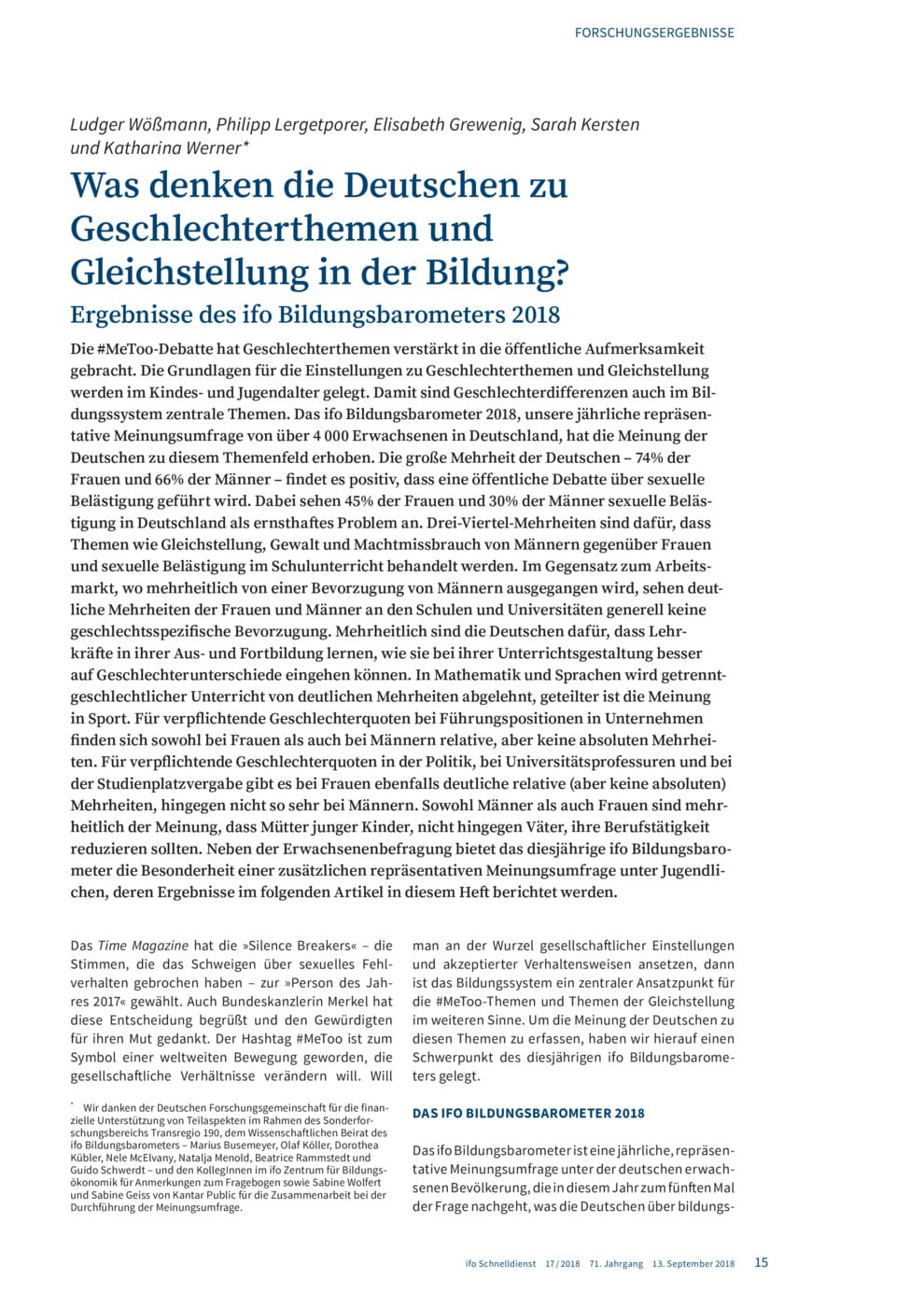What Do Germans Think about Gender Issues and Equality in Education? – Results of the ifo Education Survey 2018
ifo Institut, München, 2018
ifo Schnelldienst, 2018, 71, Nr. 17, 15-30

The #MeToo debate has focused public attention on gender-related topics. The foundations for attitudes to gender-related topics and equal opportunities are laid in childhood and teenage years. This makes gender differences a key issue in the education system. The ifo Education Survey 2018, an annual representative survey of over 4,000 adults in Germany, surveyed Germans on their opinions on this issue. The vast majority of Germans -– 74% of women and 66% of men – find it positive that a public debate over sexual harassment is taking place. 45% of women and 30% of men see sexual harassment as a serious problem in Germany. A three-quarters majority favours covering topics like equality, violence, male abuse of power and sexual harassment in school classes at school. Unlike in the labour market, where the majority believe that men receive preferential treatment, clear majorities of men and women generally see no gender-specific preferential treatment in schools and universities. The majority of Germans think that teachers should be given further training in how to deal with gender-related differences more effectively in their teaching. In math and languages separate-sex teaching is rejected by clear majorities, but opinions are more divided when it comes to sport. Relative, but not absolute majorities of both men and women favour gender quotas for management positions in companies. A large relative (but not absolute) majority of women also supports obligatory gender quotas in politics, for university professorships and in the allocation of university places. This trend is not as pronounced among men. The majority of both men and women believe that the mothers of young children, but not their fathers, should reduce their working hours.